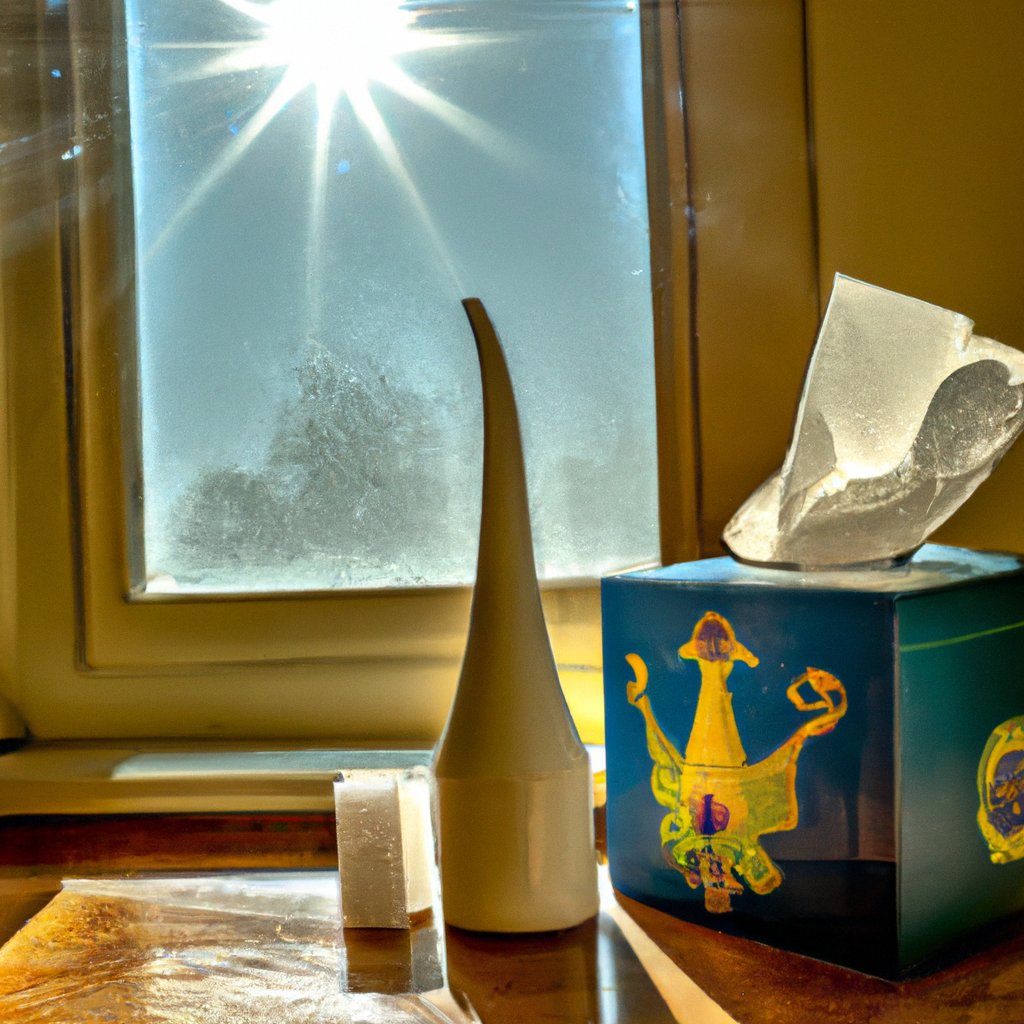Some links on this post may link to affiliate pages that offer compensation to the author of this post.
My wife has lived her entire life with pretty severe and debilitating allergic reactions to all sorts of things like pet dander, most types of grass, pollen, cotton, and just about everything you can find in nature. Unfortunately for us, we have lived most of our lives in Utah and Idaho loves to cause trouble for her. So as allergy season is upon us, we thought we would share with you all the tips and tricks we have learned over a decade of experience dealing with and managing her allergies. We will cover everything from homeopathic remedies for symptom management, to all the mistakes we made with the doctor.
Exploring the Best Natural & Alternative Treatments For Allergy Relief
Clear your Sinuses with a Neti Pot
Depending on your allergic reaction, there may be a lot of ways to naturally treat your allergies. For example, when my wife gets a stuffed nose because our cat decided to snuggle up with her, we have found a nice neti-pot to be a solid way of helping clear her sinuses. You can buy the one we use directly from Amazon here.
If you are unfamiliar with the concept of a neti pot, a neti pot is a small container used for nasal irrigation, a practice also known as nasal cleansing or nasal rinsing. It is typically made of ceramic or plastic and has a spout that fits into one nostril. To use a neti pot, you fill it with a warm saline solution and tilt your head to the side, allowing the solution to flow into one nostril and out the other.
This process helps to flush out mucus and other debris from the nasal passages, which can help relieve symptoms of allergies, sinus infections, and other nasal conditions. Neti pots have been used for centuries in traditional Ayurvedic medicine, and they are generally considered safe when used properly. However, it’s important to use sterile water and to clean your neti pot regularly to avoid the risk of infection.
Reduce Sneezes and Watery Eyes with Allium Cepa
This remedy is made from red onion and is often used for sneezing and watery eyes that are caused by allergies or a cold. Allium cepa is the Latin name for the common onion, which is widely used as a culinary ingredient.
In homeopathy, Allium cepa is also a remedy made from red onion. The remedy is prepared by crushing the onion and then diluting the juice with alcohol. Allium cepa is commonly used to treat symptoms of the common cold and allergies, including sneezing, runny nose, and watery eyes. It is believed to work by stimulating the body’s natural healing response and helping to reduce inflammation in the nasal passages. Allium cepa is often used in combination with other homeopathic remedies to create a customized treatment plan for each individual patient.
In our personal experience, this has been one of the best ways to preventatively work against the problems of Sneezing and Watery eyes in addition to other natural medicine techniques. It may just be that the Neti Pot was the best for our unique situation but we always tend to follow it up with Allium Cepa.
Ice Packs and Heated Rice Bags for Nasal Congestion
As you may be able to tell, most of my wife’s allergic reactions revolve around nasal decongestion so we are very familiar with treatment methods for this particular allergic reaction. The last item on our list we use to help relieve her allergic reaction symptoms is traditional ice and heat.
Cold Therapy for Nasal Decongestion
Applying cold to the affected area can help to reduce swelling and inflammation, which can make it easier to breathe. Unfortunately, our immune response traditionally works by swelling which can cause deeper discomfort. So the first thing me and my wife do when she is having an allergic reaction is to apply an ice pack to her nose for quick and effective reductions in swelling.
Cold therapy is a great way to relieve the initial swelling and pressure in your nasal pathways, but it’s not going to help a ton for decongestion. That’s why we usually follow it up with heat therapy.
Heat Therapy for Nasal Decongestion:
Applying heat to the affected area can help to open up the nasal passages and relieve congestion. You can use a hot compress, a warm shower, or a humidifier to provide heat therapy. The warmth helps to increase blood flow to the nasal passages, which can help to reduce inflammation and loosen up mucus.
You can alternate between hot and cold therapy to maximize the benefits. Begin with hot therapy for a few minutes to open up the nasal passages, followed by cold therapy for a few minutes to reduce inflammation. We will usually repeat this process back an forth until we start to see results – but sometimes, you just need to rest and that’s our final recommendation.
Why Rest is the best way to Relieve Allergic Reactions in the Short Term.
Getting adequate rest is super important to relieving allergic reaction symptoms. When you are awake, your body is constantly under some degree of mental, physical, or emotional stress. Stress has been found to be one of the key factors in worsening allergies so when we are feeling stressed, we are more likely to suffer from an allergic reaction.
That’s why so many of our allergic reactions tend to happen when our stress levels are higher. During the holiday season, early quarter 2 when business stress tends to hit an all-time high, and at the end of school semesters are all periods when many people start to report their allergic reactions more.
That’s because our immune system is less effective when we are stressed so allergens are more likely to invade our bodies and cause all sorts of trouble. One of the best ways we have found to relieve stress and in turn relieve allergic reactions is to get the appropriate amount of sleep.
What Are Allergies and Alternative Treatments?
In short, an allergic reaction is what happens when our body has built up an immune response to some sort of pathogen, material, or almost any sort of external stimuli. My wife has spent her life being allergic to almost everything under the sun so we have become very familiar with the way allergies work and how to treat each of them.
Alternative treatments to allergic reactions are ways to treat allergic reactions with both proactive and reactive measures. As my wife and I have learned, the best way to deal with an allergy is to get ahead of it so we will be discussing both alternative treatments you can use to relieve symptoms, and ways to help prevent an allergic reaction from happening.
Understanding the Different Types of Allergic Reactions
Which allergic reactions can be remedied with homeopathic methods?
Before we get to the nitty-gritty, it’s important to understand the different types of Allergic reactions. There are three scales by which you ought to categorize your allergy. Understanding the different types of allergic reactions can help you identify potential triggers and take appropriate steps to reduce your risk of developing an allergy.
- Severity – Is your allergic reaction Mild, heavily inconvenienced, Severe, or Life-Threatening?
- Reaction Type – Is your reaction related to the Ear, Nose, and Throat? Do you develop rashes?
- Allergy Triggers – What causes your allergy to “flare up?”
With the Severity of your allergy, anything above a mild inconvenience should be left to a doctor to help prescribe medication and help you develop a plan of response. Click here to learn more about getting a low-cost allergy appointment.
The Benefits of Natural & Holistic Approaches for Managing Allergies
With that disclaimer out of the way, let’s talk about what Natural and Holistic approach my wife and I use to help her better maintain her allergic reactions to grass, dogs, cats, pollen, and almost everything else under the sun.
See back when my wife was in her teenage years, she went to the doctor and got an allergy test. I highly recommend starting with Allergies can be a difficult thing to manage, but there are natural and holistic approaches that can help. Natural health approaches focus on treating the underlying causes of allergies, while holistic medicine looks at the body as a whole and helps to restore balance. Both of these approaches offer benefits when it comes to managing allergies.
By taking a natural health approach, people can identify potential triggers for their allergies and take steps to avoid them. Holistic medicine takes into account all aspects of a person’s lifestyle and environment, which can be beneficial in understanding the root cause of an allergy and finding ways to manage it. With both of these methods, patients may find relief from their symptoms without relying on traditional medications or treatment
Thanks for reading to the end of this post. If you find the information I provide to be helpful, please consider subscribing.
Disclaimer: None of the information presented on this site constitutes legal, business, tax, or medical advice. In each scenario, it’s recommended to first chat with a medical, legal, business, or tax professional before making any decisions.



